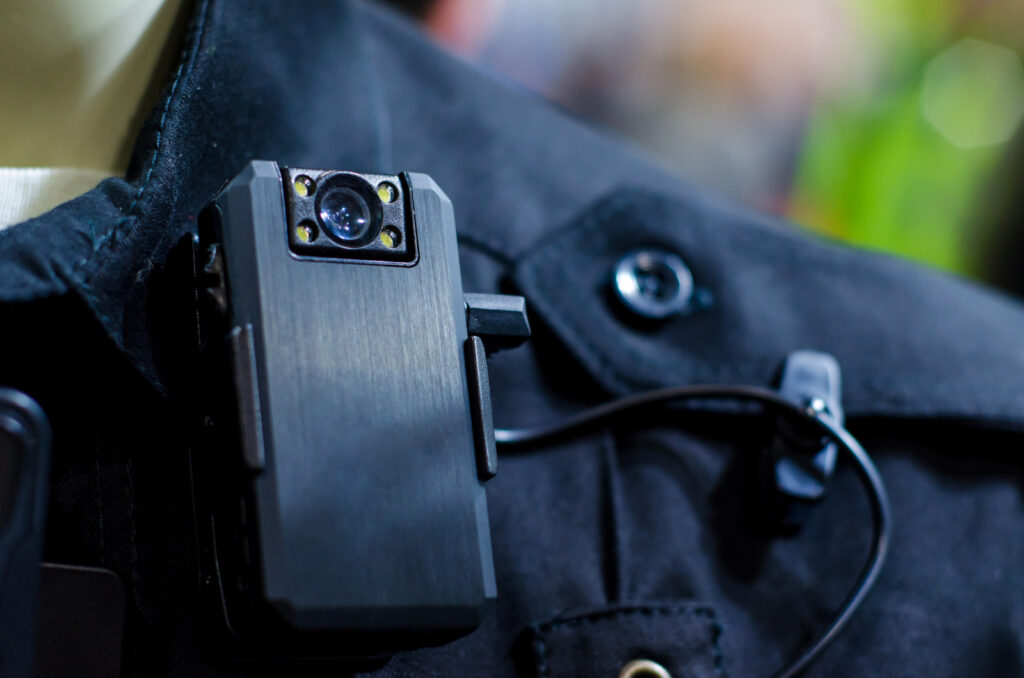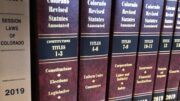By Jeffrey A. Roberts
CFOIC Executive Director
A judge is examining how much body-worn camera footage must be provided to the public when there is an incident of alleged misconduct by law enforcement.
The case involves the May 23, 2024, shooting and killing of Kilyn Lewis by an Aurora Police Department SWAT team member. Prosecutors declined to file charges against the officer but family members of Lewis, who was unarmed, filed complaints with the department and his death continues to spark outrage.
A “complaint of peace office misconduct” is needed to activate the body-cam footage provisions of the Law Enforcement Integrity Act, which the Colorado legislature passed in 2020 following the killings of George Floyd in Minneapolis and Elijah McClain in Aurora.

The statute requires the release of “all unedited video and audio recordings” of an incident “including those from body-worn cameras, dash cameras, or otherwise collected through investigation” within 21 days after a request. An agency can delay the release of video until 45 days from the date of an allegation of misconduct if the video “would substantially interfere with or jeopardize an active or ongoing investigation.”
Aurora has released some body-cam footage of the shooting of Lewis, but only “limited and edited” segments, according to a lawsuit filed for 9NEWS in February by Rachael Johnson, an attorney with the Reporters Committee for Freedom of the Press.
“The statutory language at-issue here is unequivocal: Once a complaint of peace officer misconduct has been made by a civilian and notice is provided to the law enforcement agency involved in the misconduct, upon request, all unedited footage of the incident must be released,” says a brief Johnson submitted to Arapahoe County District Court Judge Benjamin Figa.
Aurora and 9NEWS disagree about the meaning of the word “incident” in the Law Enforcement Integrity Act.
In a court brief filed before a March 28 hearing on the lawsuit, Aurora argues that it is only obligated to provide the news station with “trimmed” video clips from five officers present during the shooting that were previously provided to Lewis’ family, “utilizing their definition of the ‘incident’ of misconduct.”
“The videos ran continuously to depict the incident of misconduct described by the family’s counsel, with no redactions or edits, and were provided in native format,” says the brief, submitted by Deputy City Attorney Hollie Birkholz. There is “additional footage on the front and back end of what was provided,” it adds, “but that additional content does not depict the incident of misconduct identified by the family,”
Birkholz wrote that neither “incident” nor “unedited” are defined terms in the statute, and there is no case law interpreting them. There is a case in the Court of Appeals regarding whether law enforcement agencies are permitted to charge hundreds or thousands of dollars to provide body-cam footage under the Law Enforcement Integrity Act.
The Aurora brief says the judge should consider the “financial burden” on law enforcement agencies “and the potential for over-reach of media organizations to seek information in excess of even what family members receive, at no cost.”
“Given the state does not provide funds to local government in furtherance of their compliance with this section, requiring a law enforcement agency to compile and produce BWC (footage) in excess of what the person making the complaint of misconduct received — who as here, specifically defined ‘incident’ — inappropriately places the costs of compliance on local government.”
According to the 9NEWS brief, Aurora police have body-camera footage from 12 officers and have not provided the news station footage from seven. It says footage from four officers “was edited to only show a segment of the incident on May 23, 2024, starting at 11:50 a.m. and abruptly ending a few minutes later when paramedics are heard arriving to the scene of the shooting. From the edited footage it is unclear what actions these officers take after paramedics arrived, including with respect to any further medical care provided to Mr. Lewis.”
“APD did not provide all footage in response to numerous requests pursuant to the Integrity Act,” Johnson wrote, “and … the provided BWC footage was in fact edited. Such actions are at odds with the Integrity Act’s statutory mandate that ‘all unedited’ footage is released following a complaint of peace officer misconduct.”
Although the statute does not define “incident,” the 9NEWS brief argues, the word does not limit what footage the police department is required to produce: “It would defeat the purpose of the Act if law enforcement agencies were permitted to narrow what footage is publicly disclosed based on what they deem to be the ‘incident.’”
Johnson noted that a section of the law uses the word “incident” to describe when an officer is permitted to turn off a body-worn camera — “when there is a long break in the incident.” The use of the word in that section “implies that the incident ends when the camera is turned off,” she wrote.
Follow the Colorado Freedom of Information Coalition on X or BlueSky. Like CFOIC’s Facebook page. Do you appreciate the information and resources provided by CFOIC? Please consider making a tax-deductible donation.




